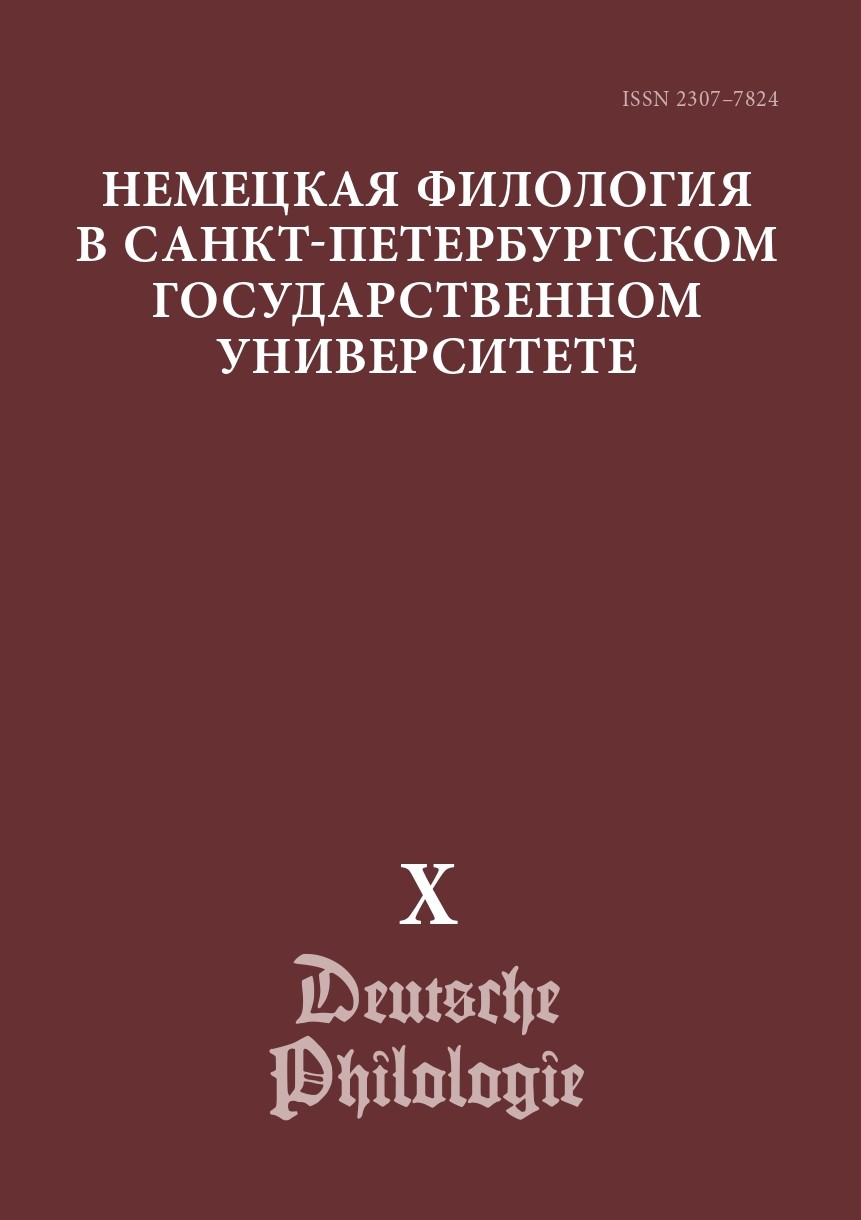A GRAMMATICAL DESCRIPTION OF M.V. LOMONOSOV’S GERMAN DICTIONARY
Abstract
The purpose of this article is to analyze the grammatical apparatus of M.V.Lomonosov’s German language dictionary. The study material consists of 20.000 word usage cases from Lomonosov’s German texts, published as a part of the 11-volume collection of his works. During the study, following characteristics were discovered: core building principles of the dictionary article and its grammatical apparatus; main features of the original bilingual dictionary and their influence on the grammatical apparatus; means of selecting proper grammatical characteristics for each part of the speech. Diachronic analysis of equivalent lexemes in both the modern and the 18th-century German language was conducted using examples from different dictionaries of that time: Lexicon of Veismann, J.-H.Zedler’s “Großes vollständiges Universal Lexicon aller Wissenschaften und Künste”, and J.Chr. Adelung’s “Grammatisch-kritisches Wörterbuch der Hochdeutschen Mundart”. The analysis of lexical entries from five letters — O, P, Q, R, S — in the Lomonosov’s dictionary provided data on the parts of speech distribution and demonstrated the possibility of considering specifics of the German language as one of Lomonosov’s idiolects. The dominance of nominal words testifies to the nominative
character of Lomonosov’s language, while its bias towards the use of nouns and verbs corresponds to the predominance of material information, which correlates with the official style. Proper names confirm the autobiographical nature of his quotations. The frequent use of perfect participles as independent attributives emphasizes the narrative character inherent in Lomonosov’s letters, which allows capturing the poly-eventuality of described situations.
Keywords:
Lomonosov, German language, historical linguistics, lexicography, grammar apparatus
Downloads
Downloads
Published
How to Cite
Issue
Section
License
Условия передачи авторских прав на статьи и рецензии, опубликованные в ежегодном периодическом издании «Немецкая филология» регулируются условиями Лицензионного Договора автора с Санкт-Петербургским государственным университетом. В соответствии с Лицензионным Договором опубликованные материалы находятся в открытом доступе, а авторам бесплатно предоставляется неограниченные возможности их распространения и самостоятельного архивирования.




